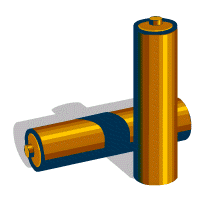eCycling (Electronics Recycling)
Electronics and appliances are the fastest growing portion of trash today. The EPA predicts that in the next five years, approximately 250 million computers will become obsolete. Cell phones are being discarded at about 130 million per year. That's about 65 million tons of waste!
-
How Can You Recycle Electronics?
Electronics present an environmental hazard if discarded improperly. Lead and other potentially hazardous materials in these devices call for special handling at the end of their use. The EPA has launched a national campaign to reuse and recycle old computers, televisions, and cell phones.
-
Cell Phones

Many cell phone providers have programs to donate old and unwanted phones to local organizations. Check with your provider to see if such a program exists.
-
Computers

Computer replacement is at its fastest rate ever. So what do you do with your old computer? Most companies have recycling and donation programs in place to give your old computer a new life.
-
Rechargeable Batteries

Rechargeable batteries are found in laptops, cellular phones, power tools, and other electronics. They contain hazardous chemicals that can pose a risk to the environment if disposed of improperly. During the recycling process, recovered materials are used to make new batteries and stainless steel products. Remember, if it's rechargeable, it's recyclable.



